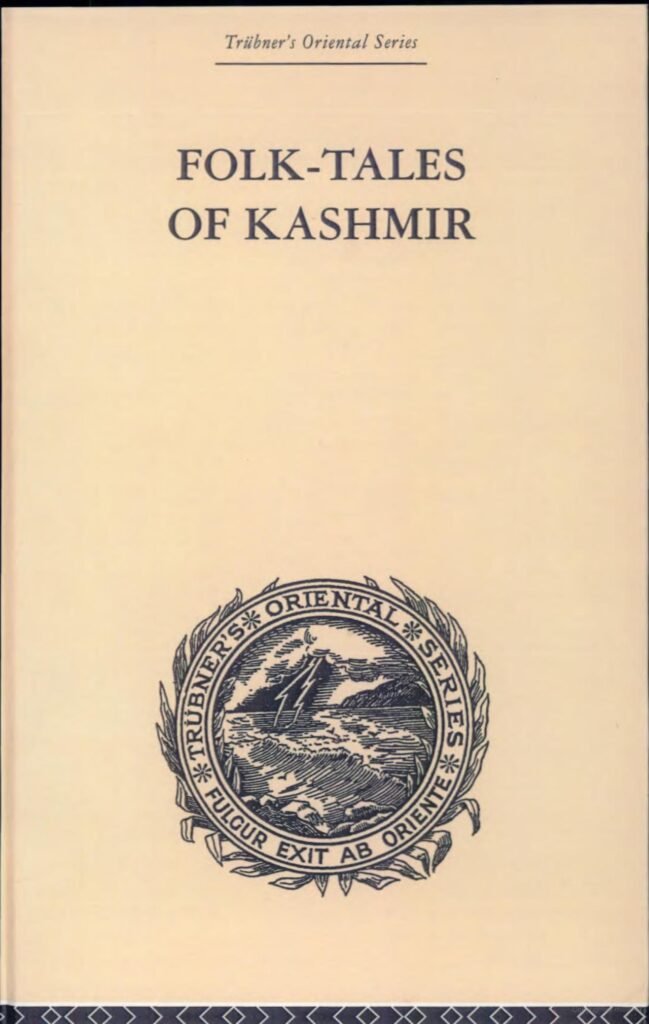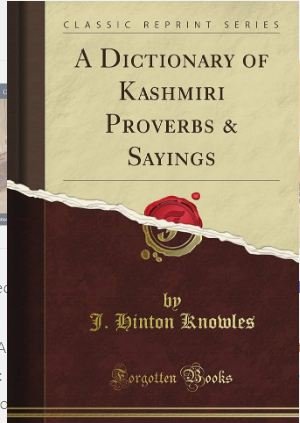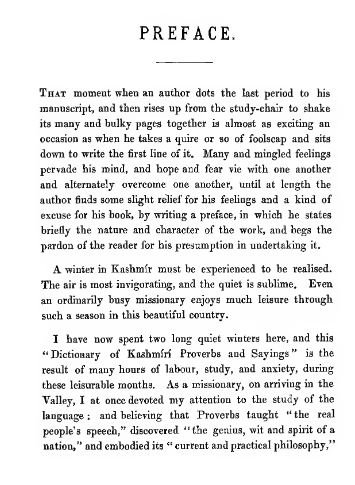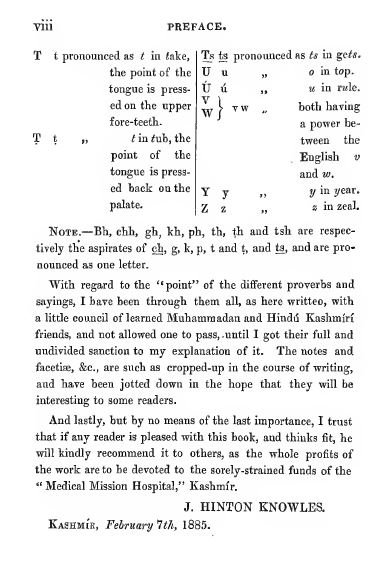(Kashmir Rechords Exclusive)
In the late 19th century, far from his home in England, a young British missionary named James Hinton Knowles arrived in the Kashmir Valley. Born in Clerkenwell, London, in 1856, Knowles came to Srinagar in 1880 under the Church Missionary Society. His mission was clear—to serve through education and health—but his heart soon became devoted to something more: the living language and folklore of the Kashmiri people.
During his eleven years in Kashmir, Knowles not only tended to the sick and guided young students at the Mission’s boys’ school—where he served as director from 1880 to 1891—but also immersed himself in the rhythms of local speech. He believed that proverbs carried “the real people’s speech,” a truth distilled over centuries, and he began collecting them with almost obsessive care.


This effort culminated in 1885 with his first great work, Kashmiri Proverbs and Sayings, followed in 1893 by Folktales of Kashmir, a treasury of over 100 traditional stories. Together, these volumes became invaluable cultural archives—works that still resonate in the Valley’s oral and literary tradition today.
Knowles’ proverb collection brims with local wisdom. Familiar sayings like Aki Tsat Sum Ta Sass Gav Kouli (A single spark can burn down a forest), Anim Soi, Wavum Soi….. (As I sow, so shall I reap), Bir Balun Kath (A sheep without wool), and Hapath Yaraz (A week’s friend) are accompanied by the Kashmiri folk stories from which they sprang. He recorded not only the words, but the very circumstances in which they were spoken—by a learned Pandit, a chatty barber, or a weary coolie.
In his own preface, Knowles described the years of “labour, study and anxiety” behind the book. The work was not without challenge: the Kashmiri language lacked a proper dictionary and grammar; it was written in the Sharada script, known to only a small section of the population; and it varied so widely between Hindu and Muslim speakers that even transcribing the sounds into Roman script proved daunting. Yet, he persevered—acknowledging the invaluable help of local Muslim and Hindu friends who guided him in arranging the collection.


Every paisa earned from the book’s sale, Knowles pledged, went to support the struggling Medical Mission Hospital in Kashmir—a gesture as telling of his character as his scholarship.
James Hinton Knowles left Kashmir in the 1890s, eventually passing away in Ely, Cambridgeshire, on 22 December 1943. But his legacy endures in the proverbs still traded in everyday Kashmiri speech and the folktales that continue to charm readers more than a century later. Through his painstaking work, he became not merely an observer of the Valley’s culture but a guardian of its spoken soul.

